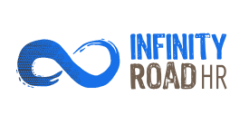|
2020 is turning out to be the year that none of us expected, and few of us were prepared to tackle. Almost overnight, our professional workforce went from a thriving, fast-paced machine to a grinding halt. Now that the smoke is starting to clear and we have a few months of this under our belt, many companies have a whole new perspective on what an HR professional does. Of course there are the tactical aspects of HR that have to be handled, but on top of that: We are the counselor taking the late night calls from our employee who is at the end of his/her rope trying to work full-time in isolation and perhaps be the homeschool teacher at the same time. We are the strategic advisor bombarded daily with changing information on new laws and regulations that we must communicate to our leadership so that we can figure out how best to sustain the workforce until we come out the other side. We are the benefits advisor scouring our existing benefit offerings and seeking to establish new programs or re-educate the workforce on benefits that are suddenly critical options (i.e. telemedicine visits and Employee Assistance Programs). We are the motivator striving to maintain a collaborative workforce in a world connected by technology alone. We are the technical consultant feverishly researching new HR technologies to help us interview, onboard, manage and motivate employees in a virtual work environment. We are the student attending countless webinars and training sessions on how best to create a plan for the “new normal” once the doors of our businesses re-open. And we are the facilitator fostering discussions between our diverse employee populations to help break down walls and uncover hidden biases. It’s not that we didn’t do all of these things before the COVID-19 era, but we managed them in a much more limited capacity. For the forward thinking companies who had already implemented modern HR technologies, enhanced their non-traditional benefits and programs, and developed crisis communication strategies this has been a moment to shine, but for others it has been an exhausting game of catch-up. So, where do we go from here? Consider this HR timeline that shows a high-level evolution of the HR profession since the 1950s. We’ve come a long way. As we embark on the next decade, there will be a radical shift, and it’s possible that this is the moment many HR professionals have been waiting for. It’s our chance to really dig in and work with leadership to create change, and we will suddenly have a listening ear where there may not have been one in the past. At our core, we care about people and values. We want to see employees thriving and we want to build corporate cultures that draw people in instead of pushing them out. We want to build programs that are efficient and effective, with all employees in mind. And most of all, want to look back ten years from now and know that we have made a difference in someone’s professional experience. After all, hindsight is 2020 isn’t it?
1 Comment
|
Infinity Road HR, LLC 2013


 RSS Feed
RSS Feed